Headed by veterans in the field, the SingHealth Duke-NUS Supportive and Palliative Care Centre (SDSPCC) will improve quality of and access to care through collaborative clinical services, enhanced training, research and community partnerships.
Longer lifespans, coupled with Singapore’s ageing population have triggered a fast-growing demand for supportive and palliative care. However, demand has outpaced the growth of trained healthcare professionals and caregivers to meet this need locally.
The new SingHealth Duke-NUS Supportive and Palliative Care Centre (SDSPCC) will bring together healthcare professionals and community partners to meet the future needs of patients in a more coordinated manner.
A multi-disciplinary approach to expand care and coverage
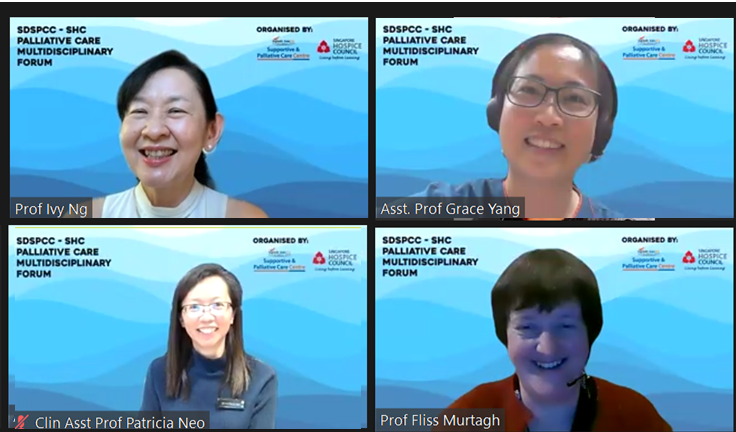
A shot from the Palliative Care Multidisciplinary Forum, an event where the SDSPCC was launched on 23 March 2021. The Forum was jointly organised with Sinapore Hospice Council.
Like a tight-knit community, SDSPCC operates on the premise that it takes an entire village (and more) to ensure the well-being of individuals.
This “village” consists of a community of interdisciplinary healthcare professionals of all specialties from different healthcare institutions. They are working to build the capability and capacity for supportive and palliative care by sharing resources, best practices, research and education.
The ambitious undertaking is headed by Clinical Assistant Professor Patricia Neo, head of the National Cancer Centre Singapore’s Supportive and Palliative Care division who also serves as the chairperson of the Singapore Hospice Council.
Clin Asst Prof Neo is supported by four directors and palliative medicine specialists, each overseeing the different pillars of the SDSPCC - clinical services; education; research; and community partnerships.
Here’s how the team is changing the supportive and palliative care landscape.
Get updates on Tomorrow's Medicine in your mailbox! Click here to subscribe.
Clinical intervention starts earlier
One of Dr Shirlynn Ho’s first tasks is to implement programmes that help clinicians identify eligible patients earlier in their illness trajectory. Her team is also working to standardise clinical service quality indicators and start quality improvement projects across different services.
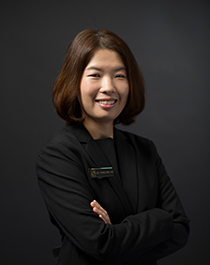
“The population is ageing and advanced medical care is prolonging lives. This will only intensify the demand for healthcare professionals who can provide competent quality medical care, and also attend to their quality of life over a prolonged period.
Specialist palliative care providers cannot do this alone— experts in different areas of healthcare need to see the benefits of supportive and palliative care and be supported to provide this level of care to meet their patients’ needs. To advance this, we strive to provide more training and promote clinical collaborations with given resources.”
~ Dr Shirlynn Ho, Director (Clinical), SDSPCC
Upskilling is key
Education and training is another important pillar that is led by Clinical Assistant Professor Peh Tan Ying. She will work with the Lien Centre for Palliative Care and Singapore Hospice Council to develop training programmes for specialist and generalist healthcare providers
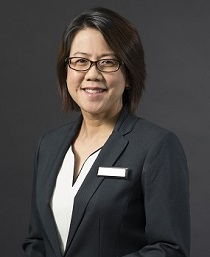
“A recent survey done by the Singapore Hospice Council found that despite a growing awareness of palliative care and its importance, more than half of healthcare workers surveyed reported not having received basic or adequate training in this area.
In addition to training medical professionals, we have plans to develop training programmes for healthcare students, community providers and the public. And also create caregiver resources. A wide outreach is also necessary to provide palliative care training on a larger scale across SingHealth as well as the nation.”
~ Clin Asst Prof Peh Tan Ying, Director (Education), SDSPCC
Generating new knowledge through research
Increased knowledge of patient needs and gaps in the healthcare journey helps in the provision of evidence-based care. The goal is to train more healthcare professionals in undertaking research, encourage cross-institutional collaborations, embrace innovations and experiment with new models of care. Assistant Professor Grace Yang and her colleagues are planning to develop a SingHealth Palliative Care Registry, a database that can be used to address service development, quality improvement and research objectives, ultimately linking up to data available in the community to track patients’ journey from hospital to community, and monitor care outcomes.
Exploring and deploying innovative ideas to introduce more efficient and effective models of care is also on their to-do list.
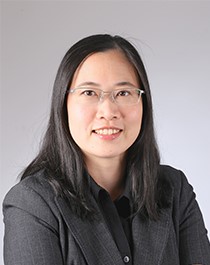
“One of the new ideas we are working on is how to provide ‘precision medicine’ in this field, as there is no one-size-fits-all approach to palliative care.
This involves matching individual patients with specific support through data in the electronic health records and consultations with patients. Machine learning could also pair patients with the “best-fit” generalist or specialist service, to improve care quality and outcomes for patients with serious illnesses.”
~ Asst Prof Grace Yang, Director (Research), SDSPCC
Joining hands with the community
Caregivers to patients with serious or chronic illnesses are all too familiar with repeated stays at the hospital and transits to step-down care, along with rehabilitation and follow-up medical appointments along the way.
For this reason, there is an immediate need to ensure smooth and seamless care transitions. SDSPCC is also working with community partners to map out patients’ journey to identify and develop collaborative interventions in areas of unmet need.
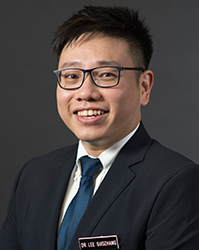
“With long-term chronic conditions , supportive and palliative care needs will vary in intensity over time, requiring different levels of care provision in acute, intermediate and long-term care settings. This has prompted us to work closely with community partners such as hospices and community hospitals to improve care transitions and maintain the quality of care across different settings.
A significant number of patients may also benefit from earlier provision of supportive and palliative care, so that they can continue to live well in the community.”
~ Clin Asst Prof Lee Guozhang, Director (Community Partnership), SDSPCC
SingHealth Duke-NUS Disease Centres
SDSPCC joins the growing list of the
SingHealth Duke-NUS Disease Centres (SDDCs), which bring together specialist expertise to offer integrated and multidisciplinary care at multiple institutions. The SDDCs enable patients to receive holistic care from a broader base of providers and improve outcomes through improved coordination for training, research and clinical services.
Get updates on Tomorrow's Medicine in your mailbox! Click here to subscribe.
